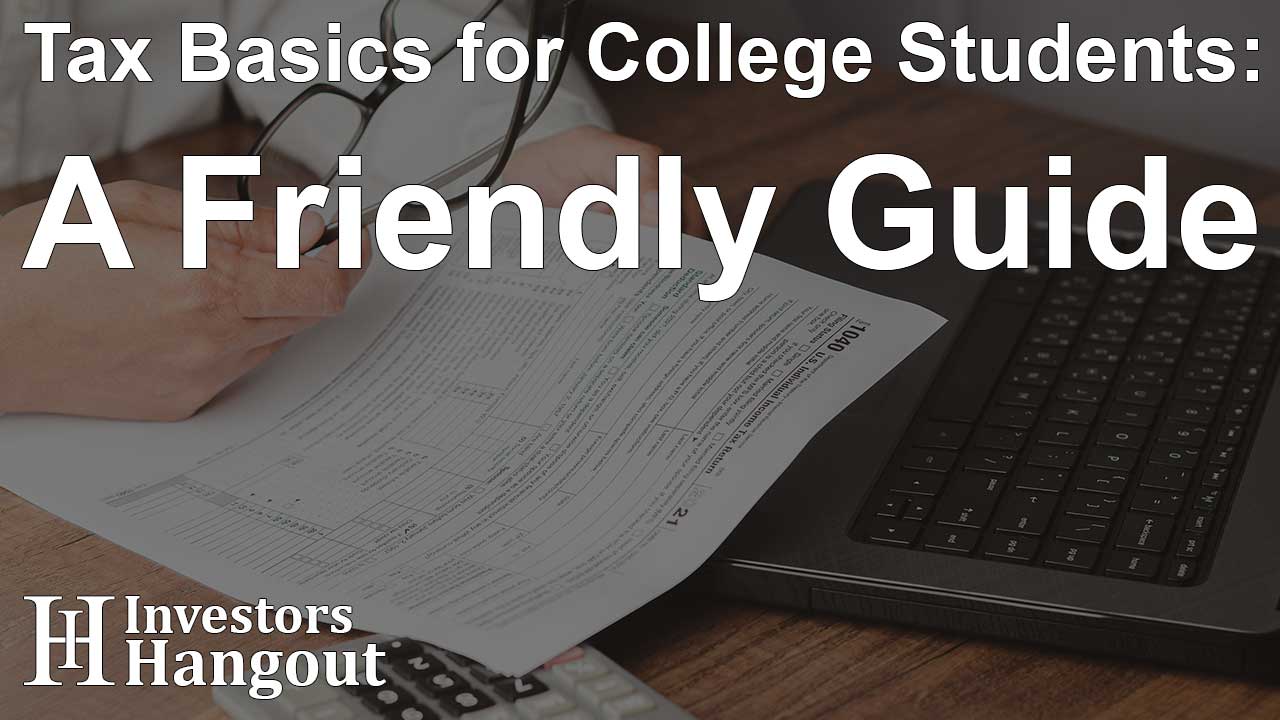Navigating college life is an exciting yet challenging adventure. Between classes, part-time jobs, and social commitments, one important topic often overlooked by students is taxes. Many college students face filing taxes for the first time, which can seem overwhelming. But don’t worry! This guide breaks down tax basics in a way that’s easy to understand, so you can tackle tax season with confidence.
Why Should College Students Care About Taxes?
You might wonder, “Do I even need to file taxes as a student?” The answer largely depends on your income. If you’ve worked part-time, freelanced, or had a summer job, you’ve likely earned some income. Once your income exceeds the IRS threshold (around $12,950 for single filers in 2024), you’re required to file. Even if your income is below the limit, filing taxes might benefit you by claiming tax refunds or credits.
Taxes also teach important life skills like budgeting, financial planning, and understanding deductions. Think of it as writing an informative essay outline - each step helps you organize your thoughts and build knowledge.
Step-by-Step Tax Basics
1. Gather Your Documents
Before you can file, you’ll need to collect essential documents. Some of the key ones include:
• W-2 Forms: Provided by employers, these detail how much you earned and how much was withheld for taxes.
• 1099 Forms: If you’re a freelancer or gig worker, this shows earnings not taxed upfront.
• Form 1098-T: This outlines tuition payments, which may qualify for education-related tax credits.
Organizing these documents is like crafting the perfect TOK essay - structure is everything!
2. Determine Your Dependency Status
As a college student, your parents may still claim you as a dependent if they provide significant financial support. If you’re a dependent, certain credits and deductions may apply to them rather than you. On the other hand, if you’re financially independent, you can claim your own credits.
Tax Credits and Deductions for College Students
Education Credits
Education-related tax credits can significantly lower your tax bill. The two most common credits are:
1. American Opportunity Credit (AOTC): Worth up to $2,500 per year for eligible students.
2. Lifetime Learning Credit (LLC): Offers up to $2,000 annually for education expenses.
Deductions for Student Loan Interest
If you’re paying off student loans, you may qualify to deduct up to $2,500 of interest paid during the tax year. This deduction can lower your taxable income.
Filing Your Taxes
1. Choose Your Filing Method
There are several ways to file taxes, ranging from online tax software to professional tax preparers. Many tax platforms offer free filing for students or individuals with simple returns.
2. Write a Thesis Statement for Your Critical Lens Essay... Sort of!
Filing taxes may feel as daunting as writing a critical lens essay. To simplify, approach it like crafting a thesis statement—clearly outline your goal and break it into manageable steps. For example:
Thesis statement: “By understanding tax credits, deductions, and filing methods, college students can maximize refunds and reduce financial stress.”
Now apply that clarity to your tax filing process!
Common Tax Questions for Students
1. What if I Worked in Multiple States?
If you worked in different states, you might need to file state tax returns for each one. Check the specific state requirements.
2. Can I File Taxes If I Have No Income?
While not required, filing taxes can still be beneficial if you qualify for refunds or education-related credits.
3. What If I Made Mistakes on My Tax Return?
Mistakes happen, and the IRS allows you to file an amended return to correct them.
Pro Tips for College Students
• Start Early: Avoid last-minute stress by beginning your tax prep as soon as you have your documents.
• Keep Records: Maintain a file of tax-related documents for at least three years.
• Ask for Help: Many colleges offer free tax assistance programs for students.
Filing taxes as a college student is more than just a financial chore—it’s a learning experience. Understanding your taxes helps you build critical skills that will benefit you long after graduation.
So, take a moment, grab your documents, and start your tax journey. And remember, whether you’re writing a TOK essay or trying to write a thesis statement for your critical lens essay, the key to success is preparation, organization, and persistence.
About The Author
Contact Owen Jenkins privately here. Or send an email with ATTN: Owen Jenkins as the subject to contact@investorshangout.com.
About Investors Hangout
Investors Hangout is a leading online stock forum for financial discussion and learning, offering a wide range of free tools and resources. It draws in traders of all levels, who exchange market knowledge, investigate trading tactics, and keep an eye on industry developments in real time. Featuring financial articles, stock message boards, quotes, charts, company profiles, and live news updates. Through cooperative learning and a wealth of informational resources, it helps users from novices creating their first portfolios to experts honing their techniques. Join Investors Hangout today: https://investorshangout.com/

